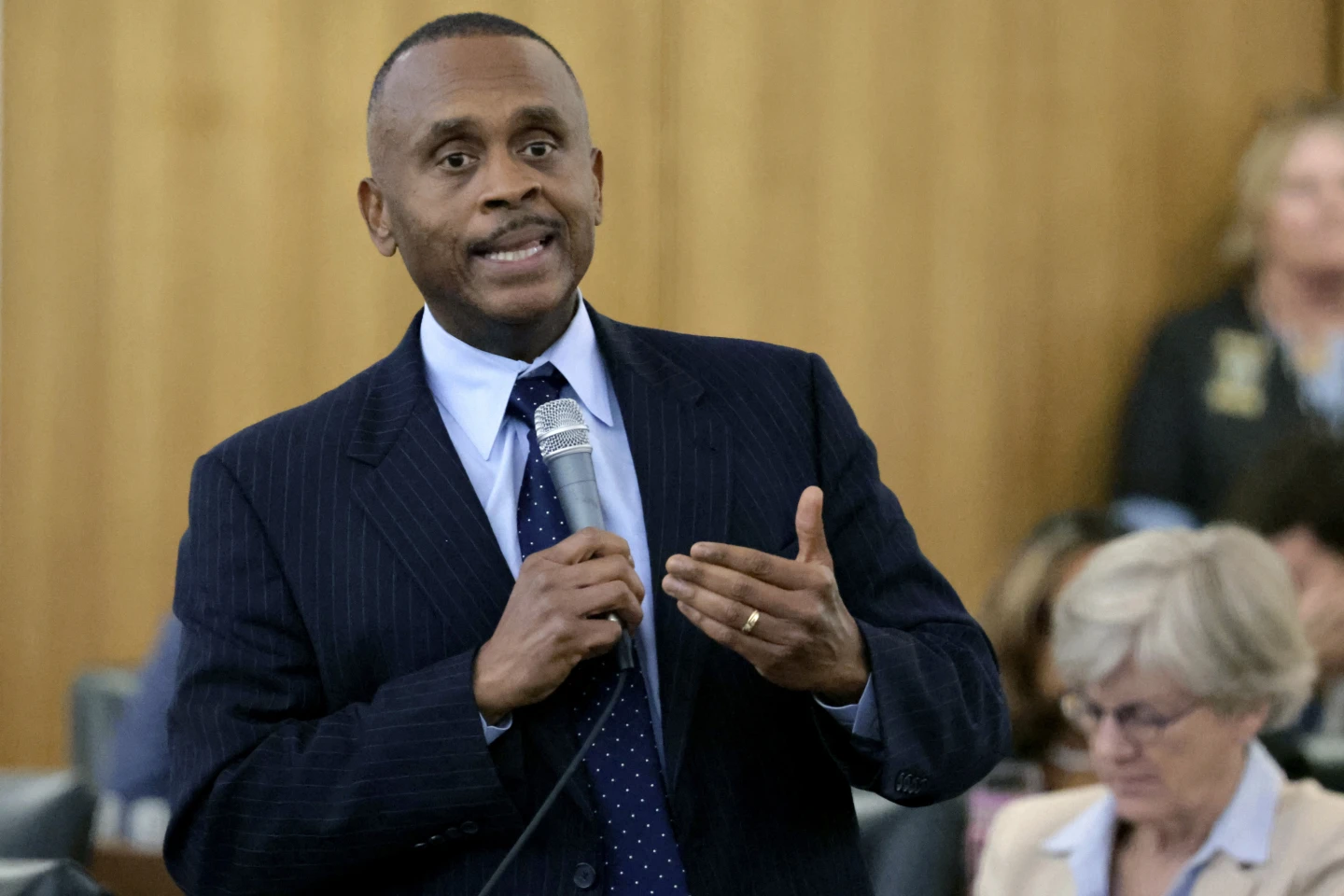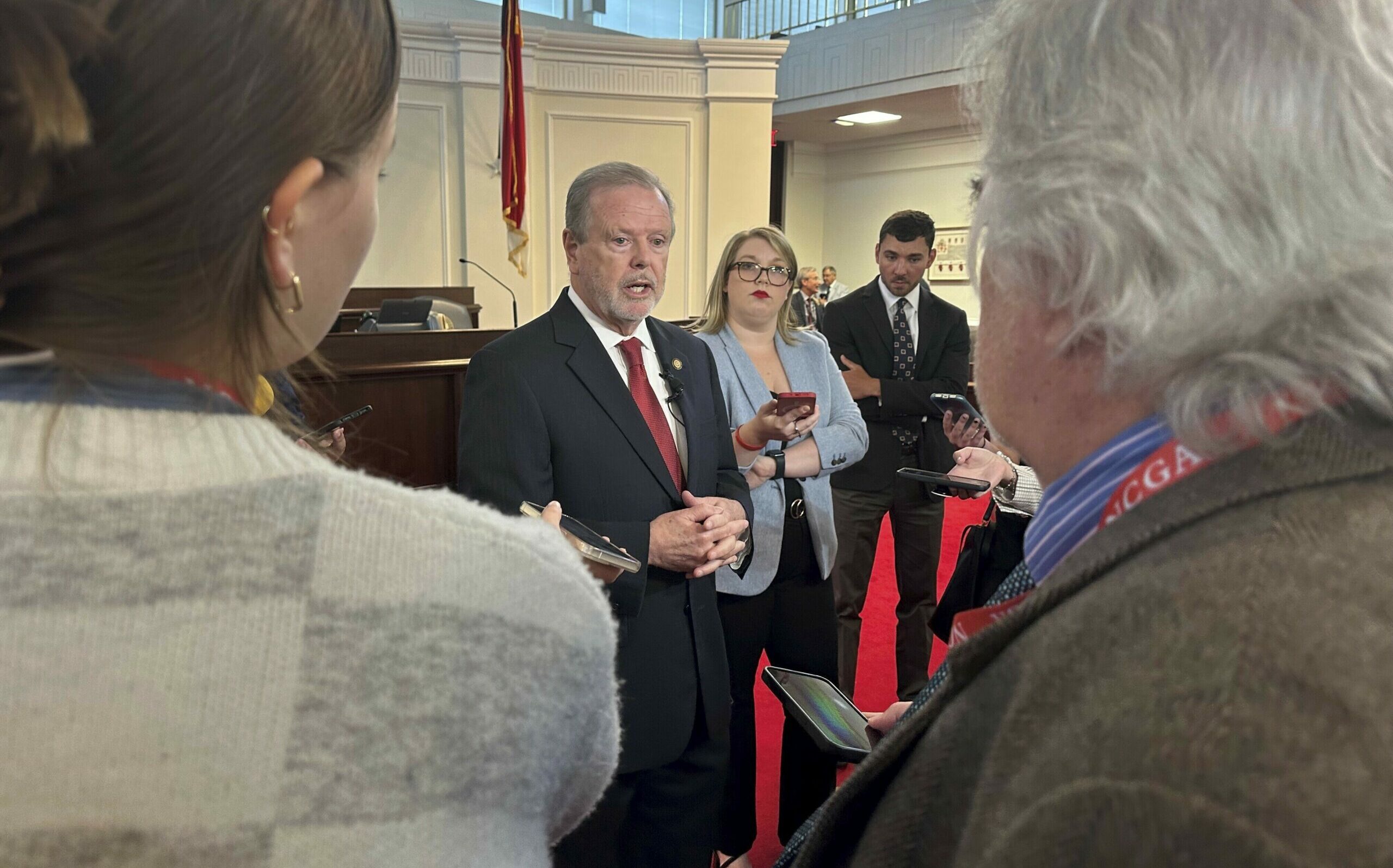Most local government boards have adjourned for the summer, but there’s still a flurry of activity at the state legislature in Raleigh.
Last week, State House Republicans introduced a provocative new education bill: among other things, the updated version of Senate Bill 90 would add restrictions on school libraries and give parents more ability to file legal challenges against school decisions they disagree with, even leading to the firing of superintendents. At the same time, several other outstanding issues continued to drag: GOP lawmakers delayed a planned vote to override Gov. Roy Cooper’s veto of three controversial anti-LGBTQ bills; House and Senate Republicans continued debating a state budget, two weeks into the new fiscal year; and State House Speaker Tim Moore announced there likely won’t be a vote on a bill to legalize medical marijuana this year.
On Thursday, State Senator Graig Meyer (D-Orange) joined 97.9 The Hill’s Aaron Keck to discuss the latest in the General Assembly – and how to understand it, and what to expect in the coming weeks.
Click here to listen to their conversation and read a transcript of their conversation below, which has been lightly edited for clarity.
Aaron Keck: Let’s start by talking about the updated version of Senate Bill 90. What should we know about this bill – and more importantly, does it have a chance of passing?
Graig Meyer: Look, this is a Moms for Liberty bill. For those folks who don’t pay attention to the current culture wars around school politics, Moms for Liberty are the people who want to (get rid of) any sort of reference to diversity or any sort of teaching of appropriate adolescent developmental education, i.e. sex education. They want to get rid of all the things in our schools that are designed to help kids to become truly well-formed, well-rounded adults. They fight against programs that are designed for student counseling and social emotional development. I mean, they are really just against everything.
And if you put this bill in historical context: this is a bill (with) provisions that seem like the types of things that White parents used to fight against integration after Brown versus Board of Education. It’s really an attempt to just break apart public schools piece by piece – including giving parents the independent authority to fire a school district superintendent. I mean, there’s stuff in this that’s just absurd.
Now, we should be horrified at the fact that any elected official would propose things like this, but I do not believe that this bill will become law. When I saw this bill come forward, I thought, “oh, this is a couple people’s junk pile of bad ideas, (but) not something that I think the entire General Assembly will pass.”
Keck: On the outside looking in, how can we tell the difference between a bill that’s likely to pass (and) one that isn’t?
Meyer: The easiest way is if you know who has power and who doesn’t. Is the bill sponsored by a committee chair, versus a back-bencher?
However, this doesn’t fall into that category. (This was originally) a Senate bill, sponsored by the Senate Education chair – so you think “okay, the Senate education chair is pretty powerful” – but this is a case where the House is hijacking a Senate bill. And the way you know that is through these three code letters called “PCS,” which is a Proposed Committee Substitute – which means the committee replaces the contents of the old bill with (the) contents they want. And sometimes you can’t tell, until you see the committee meeting itself, who’s actually doing the committee substitute. But in most cases it’s the committee chairs, and here it’s the House Education Committee chairs that are likely the ones who are backing these provisions. But the House Education Committee chairs this year have put forward a ton of bad ideas that haven’t been able to proceed.
And so you have to know enough about what’s happening internal to the General Assembly, or you have to know the right observers and commentators who can fill you in on it. And it’s not easy. There’s a lot of things about our legislative process that seem like they’re intentionally designed to make it harder for the public to follow. And this is a good example.
Keck: Well, we thank you for coming in and clarifying that – because on the outside, I have no idea.
Meyer: I mean, look, you teach a political science class, right? It shouldn’t require a PhD to be able to understand what your legislature is doing.
Keck: Apparently it requires more than a PhD, because I have one and I still don’t know.
Meyer: It’s absurd.
Keck: People also think, “oh, you’re a journalist, you must have all this inside information.” Not really, not all the time.
Meyer: (And) even journalists who work inside the legislature often don’t have all the information. And I’m like, “wait, how do you not know this thing?” But it’s because I hear it, because I’m talking to other legislators. And the journalists only ever hear it if they talk to us. They’re often observing (sessions), rather than having those conversations. But yeah – I don’t know what (degree) you get for spending 10 years in the legislature, but I’ve learned a lot, and a lot of it is disturbing.
Keck: There are three anti-LGBTQ bills that did pass the General Assembly that got vetoed by Governor Cooper, and are now back in the General Assembly for a veto override. But there’s been a delay on the override vote. Where does that stand?
Meyer: I can’t believe how hateful some of these anti-LGBT bills are, in fact of how (they) will directly impact people’s lives. These bills are more harmful than HB2 was. And the legislature seems quite intent on just moving along and passing them.
I do think that the vetoes will get overridden on these. Why have they not been overridden yet? Part of it is because the bills didn’t get passed until right before we were about to go on Fourth of July break. And now it appears that the Senate, at least, is going to be on a break until sometime in mid to late August. So the veto overrides will likely come later. But hopefully that will allow some time for pressure to mount, and maybe in one chamber or the other to find somebody who refuses to override the vetoes…
But I’ve got to say, the Republicans are pretty locked in this year, and I don’t know where we would find a Republican who wouldn’t vote to override, given how the debate went on the bills the first time. It’ll really be terrible for North Carolina to be such a hateful state as to have these these bills put into law. I mean, it really will be hateful, directly towards people of our state.
Keck: What can you do in the legislature to try to move the the dial on that?
Meyer: There have been years where we’ve been able to build coalitions across the aisle to work on issues like this, and prevent some bad stuff from happening. But those coalitions have largely dissipated this year, as many of the moderate Republicans that I started with have been replaced by people who are much more MAGA. So it’s a lot harder.
And these bills have been vetted and passed through both caucuses to the point that – you know, once they get this far, everybody’s signed on. Some people might privately tell us that they’re holding their nose, but the Republicans control (them) with such force that if somebody was to break ranks and and split on one of these, they would have to pay major internal consequences. Back to the point about what people don’t see: there’s a lot of things that happen where it’s really about the internal pressure to hold people accountable to their party.
(Last week) Speaker Tim Moore admitted something that we’ve known for a long time, but has never been – as far as I know – publicly admitted, which is that they don’t put a bill onto the floor for a vote unless they know they have a majority of (GOP support). They don’t have that right now on medical marijuana – even though if they did put it on the floor, with the Democratic votes, it would pass widely. But that’s the type of pressure that they use, to make sure that whatever gets voted on is exactly what they want as part of their agenda. (And) let’s be clear: these anti-LGBT bills – specifically the anti-trans bill, about minors’ access to any type of gender affirming medical care – this is a core part of the entire Republican Party’s belief system and their political agenda right now. This is not some right wing, radical MAGA agenda. This is all of them.
Keck: I’m glad you brought up medical marijuana – because there is bipartisan support for that, just not enough apparently to get it to the House floor.
Meyer: Huge bipartisan support. In polling, it looks like about 80 percent of North Carolinians believe we should have some form of medical marijuana. The whole reason we’re not making progress on this is because a group of (House) Republicans are blocking it inside their caucus.
Keck: There’s also disagreement between Senate and House Republicans on a budget, (now) two weeks into the fiscal year.
Meyer: And this one is just crazy. All school finance officers are asking me, “what are the teacher pay raises going to be? When are we going to be able to enact our new budgets?” I mean, this is nuts. It’s no way to run a government.
But here’s what’s even more crazy. Let me tell you the real reason why the House and the Senate are deadlocked over the budget. There’s two major things going on. One is, the Senate has this absolutely huge tax cut plan that would essentially keep our (tax revenues) at the same level as they are today for the next 10 years, even as the state will likely grow 10 to 15 percent in population. So they’re going to hamstring government – and a few years down the road, the fiscal projections show that there would be a deficit, because the giant tax cuts won’t allow us to have enough money to even (pay) our basic bills. If they pass that budget and the governor vetoes it, they actually might not be able to override that veto – because in the House, there are two specific House Republicans who are really clear fiscal hawks, and they will not pass a budget that has a structural deficit in it. That would be one of the rare instances where they would struggle to hold their own caucus together on a veto override.
So they’re trying to figure out how (to) fill this giant budget hole that they create, by giving this giant tax give away to corporations and rich folks. And of course, they always want to do that by transferring wealth from poor folks to rich folks. So what they’re working on is something that’s never been debated in any committee: they’re trying to figure out whether they can have a plan to bring five casinos to North Carolina and legalize video poker, (to) fill the budget hole with gambling in North Carolina.
Keck: I’m – actually in favor of that.
Meyer: <laugh> As someone who just got back from Vegas?
Keck: <laugh> That is correct.
Meyer: But in favor or not, that type of major policy decision shouldn’t be dropped into a conference report on the budget with no amendments, no conversation, no committee…and in the meantime, the longer we go without a budget, the longer we go without Medicaid expansion, which is another thing that we agreed on and haven’t happened yet. And as soon as we do get Medicaid expansion, we start getting $500 million a month from the federal government for healthcare. Hey, I’d like to have my tax money back, please. $500 million a month. Sounds pretty good. Let’s bring it back.
Chapelboro.com does not charge subscription fees, and you can directly support our efforts in local journalism here. Want more of what you see on Chapelboro? Let us bring free local news and community information to you by signing up for our biweekly newsletter.











